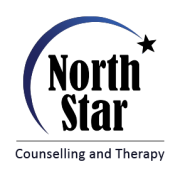[vc_section css=”.vc_custom_1570710549781{padding-bottom: 30px !important;}”][vc_row][vc_column][vc_empty_space][vc_custom_heading cms_ch_type=”default” text=”Depression” font_container=”tag:h1|font_size:35px|text_align:left” use_theme_fonts=”yes”][vc_column_text]
You might be affected by depression if you are going through:
- Complicated bereavement.
- Intense life changes against your will such as job loss, family or relationship issue, financial or health issues, etc.
- Going through trauma or witnessing and supporting someone else going through trauma.
- Recurrent thoughts of dying or suicide, or attempt at suicide.
Depression is a common mental health issue. However, it can cause serious medical illness. Depression negatively impacts how you feel, the way you think and how you act.
Depression causes a constant feeling of sadness and/or a loss of interest in activities once you enjoyed. This can lead to a variety of emotional and physical problems and can decrease a person’s ability to function in normal day to day life.
[/vc_column_text][vc_tta_tabs style=”classic” shape=”square” color=”psychologist-theme” active_section=”1″ css=”.vc_custom_1568978702107{background-color: #ffffff !important;}”][vc_tta_section i_icon_fontawesome=”fa fa-user-md” add_icon=”true” title=”Symptoms” tab_id=”symptoms”][vc_column_text]
Some of the common symptoms of depression include:
- Loss of interest or pleasure in activities you previously enjoyed, loss of sexual desire.
- Have difficulty sleeping (insomnia) or over sleeping (hypersomnia).
- Constant feelings of guilt or overwhelming negative thoughts.
- Distracted and impaired ability to think, concentrate, or make decisions.
- Recurrent thoughts of death or suicide, or attempt at suicide.
- Loss of energy and fatigue .
[/vc_column_text][/vc_tta_section][vc_tta_section i_icon_fontawesome=”fa fa-stethoscope” add_icon=”true” title=”Treatment” tab_id=”treatment”][vc_column_text]
Depression is treatable. There is no ONE treatment for depression, as everyone is different (and the causes and their depression differ) but there are some treatments that have been proven clinically effective. We outline some below
[/vc_column_text][vc_toggle title=”Self-help” style=”square_outline” color=”black” open=”true” custom_font_container=”tag:h2|font_size:20|text_align:left” custom_use_theme_fonts=”yes” use_custom_heading=”true”]
There is a wealth of resources, both online and available through (for instance) your GP, which describe how you can manage anxiety and these have proven helpful for many.
Making positive lifestyle changes can be an effective way to relieve some of the depression and can help you cope with it every day. Taking care of your body is key, especially participating in healthy activities, and eliminating unhealthy ones.
These include:
- Routine and enough sleep.
- Mindfulness and meditating.
- Being active and exercising to relieve body stress and a healthy diet.
- avoiding any substances that make you lose control over your action such as alcohol or caffeine.
[/vc_toggle][vc_toggle title=”Talking therapies” style=”square_outline” color=”black” custom_font_container=”tag:h2|font_size:20|text_align:left” custom_use_theme_fonts=”yes” use_custom_heading=”true”]
Talking therapies have proven effective in the treatment of Depression. Engaging in psychological therapy gives you a space to understand potential triggers, what helps and what makes it harder to manage, and look at developing helpful ways to cope, amongst other things. There are different therapeutic approaches that have proven effective, for instance, Cognitive Behavioural Therapy and Mindfulness-Based Stress Reduction.
[/vc_toggle][vc_toggle title=”Medication” style=”square_outline” color=”black” custom_font_container=”tag:h2|font_size:20|text_align:left” custom_use_theme_fonts=”yes” use_custom_heading=”true”]
Some prescribed medication can help alleviate the symptoms of depression and reduce its impact on your day-to-day life. You should talk to your GP or psychiatrist about the options available for you, the benefits and the potential side-effects of any medication. Medication can be prescribed as a stand-alone treatment or in combination with, for instance, talking therapies.
[/vc_toggle][/vc_tta_section][/vc_tta_tabs][/vc_column][/vc_row][/vc_section]
